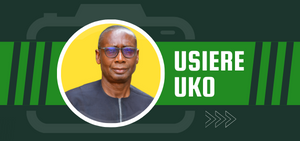Whenever we talk to a customer service representative, whether by phone or face to face, the first question we get asked is, “How can I help?” That means, “How can I be of service?” or “What can I do to solve your problem?”
This signifies that the business understands it exists to serve. However, when it comes to starting our own business, that is not the question we ask ourselves. We ponder, “Who can I serve? How do I serve them? What do I need to do to make it easy for them to find me so that I can serve them?”
Unfortunately, we often put the cart before the horse, asking ourselves, “How can we get the customer to give us money? How much money can the customer give us to meet our financial needs? How can we find more customers to meet our financial goals?”
This mindset makes it difficult for us to decide on which business to pursue. Since our focus is on money, we are concerned with how much money we can make and the easiest way to make it. When it comes to skills, we consider what skills we have that can make us money, which skills attract the highest payoff, and what we are good at that can make us the most money. The constant factor in these thoughts is “I, me, and myself.”
If our focus shifts to “How can I help?” or “How can I be of service?” everything changes. Now, we look at the existing needs, who has those needs, and what we can do to meet them. We consider what problems we can solve and what skills we need to solve those problems. Understanding that if we can solve the biggest problems for the highest number of people, they will pay us handsomely for it, and we will become rich.
Taking care of ourselves is akin to our behavior when we were children, and unfortunately, many of us carry this behavior throughout most of our adult lives. Our focus tends to be on meeting our immediate needs. We often don’t trust the process that God has put in place, which states that if you meet other people’s needs, your needs will be met.
Meeting other people’s needs first can be a scary business, as we believe giving what we have does not guarantee getting something back. If farmers thought his way, we would all be dead. Farmers routinely bury their seed (usually the best portion of their harvest), and watch it die with the expectation that their seed will come back to life as young plants.
This reminds me of the story of an adventurer who got lost in a forest and ran out of water. He stumbled upon a hut in the middle of nowhere and found a bottle of water with a note stuck to the bottle. The note had instructions on using the bottle of water to prime the pump outside to get water.
He faced a decision: drink the water and hope he won’t die before finding his way or follow the instructions and have enough water to last him till he gets help. After much deliberation, he decided his odds of survival were higher if he got the water pump to work.
He followed the instructions, as his life depended on it. His diligence paid off. He poured the water into the pump, pumping the handle as instructed, and eventually water started pouring out. He had more than enough water to refill the bottle, fill all his containers and containers in the hut, take a bath, cook, settle down, and figure out how to get help. Eventually, he got help.
Letting go of what we have can be scary because we are unsure if it will come back. However, if we follow a process that is tried, tested, and guaranteed by the creator of the universe, we have nothing to fear. It’s uncomfortable not thinking about money because, throughout our lives, we understand what not having money means. After having tried thinking about ourselves and making it happen for us, it’s time to turn it the right way up and think about others first.
We should try to focus on what existing problems we can solve rather than creating solutions for a problem that may not exist. That means listening more and asking questions rather than pushing our opinions. It is a skill I am still learning because it does not come naturally.
Needs are everywhere, making them easy to find. The decision then becomes which need has our name on it. We don’t need to make solving problems complicated. We can start with what we already know and learn as we go along. Being faithful with little leads to being trusted with much. We become known for the work we do and the character we possess. There is no excuse for doing nothing when it comes to serving other people. We can start serving where we are—at home, volunteering at work, community, in faith organizations, wherever. You have no idea when your Aha! moment will come.
As we market-test our skills, we get better and gain momentum. As we go along, the question of what business we should go into answers itself.





Leave a Reply